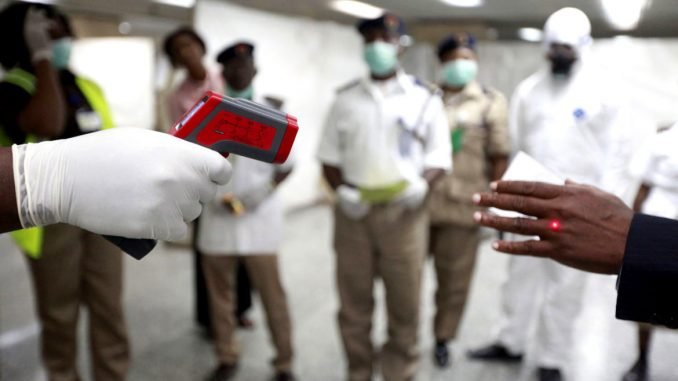
Kampala, Uganda | URN | The East African Community (EAC) Partner States have been urged to engage the communities in the border regions and traders and trade associations in risk and crisis communication measures.
The call comes days after the confirmation of a case of Ebola in Goma, the capital of North Kivu province in the eastern Democratic Republic of the Congo (DRC), one week ago. The city with a population of more than one million people is closer to the Rwandan city of Gisenyi.
The Goma patient, who had travelled from Butembo to Goma, was admitted to the MSF-supported Ebola Treatment Centre in Goma and later transferred back to Butembo, where the patient died on July 16.
Dr Michael Katende, the acting Head of Health at the EAC Secretariat says that this, plus the confirmation of a fatal Ebola case in the Ituri province of the Democratic Republic of Congo (DRC) further increases the risk for the East African Community (EAC) region of the outbreak crossing the borders.
The Ituri province is only 70 kilometres from the South Sudanese border and even closer to the Ugandan border. Regional analysts say that the vibrant trade between the Democratic Republic of Congo and the East African Community region can exacerbate the spread of the Ebola Virus Disease (EVD) due to the high mobility of people and goods.
The first three cases of Ebola in the EAC region were diagnosed in Uganda in June 2019 and triggered strong response measures by the Ugandan government.

“This is particularly important, as most of the borderline is porous and difficult to control,” says Katende, adding that informal and formal traders need to know the risk and be able to make informed decisions to minimize it and to actively take precautions.
EAC Partner States have put in place precautionary measures to stop the spread of Ebola Virus Disease into the EAC region. This includes vaccinating frontline health workers, screening all travellers at points of entry including airports and training the first responders in case of an outbreak. However, these measures might not be sufficient.
Read Also: Ebola preparedness still low in Kampala
Dr Katende was especially concerned about Ebola spreading into South Sudan with its still rather weak health system.He called upon the Partner States to increase risk and crisis communication by involving the community, religious and other leaders and the media in public awareness-raising.
At the same time, the Secretariat called upon traders and trade associations and those travelling across the border with DRC to take extra precaution and avoid unnecessary ‘body to body’ contact, the main way of disease transmission.



